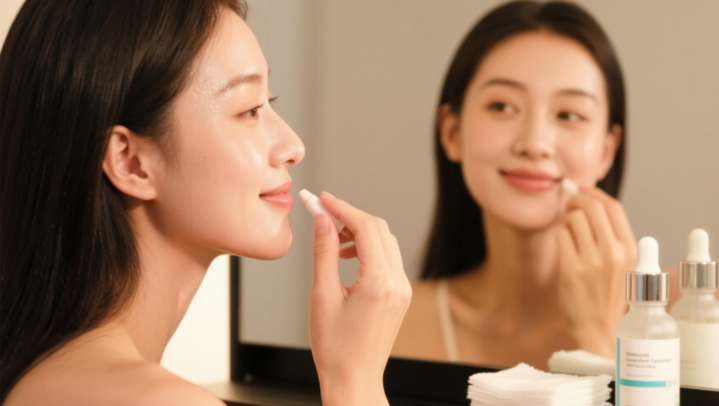2025-04-25
This article explores the world of cosmetic whitening agents, explaining their role in reducing melanin production and improving skin tone. It details different types—chemical-based, natural extracts, and physical sunscreen ingredients—their working mechanisms, and safety considerations. Readers will gain insights into making informed choices for a brighter complexion.
Details
Cosmetic whitening agents, or skin lightening ingredients, are key components in beauty products aimed at reducing dark spots, hyperpigmentation, and achieving an even skin tone. By inhibiting melanin production, these agents enhance skin radiance, commonly found in creams, serums, and sunscreens.
Hydroquinone, a well-known chemical agent, targets tyrosinase to block melanin synthesis. However, due to potential side effects and regulatory restrictions, alternatives like ascorbic acid (Vitamin C) are rising in popularity. Vitamin C not only brightens skin but also boosts collagen, gently inhibiting melanin transfer. Kojic acid, derived from fungi, also blocks tyrosinase and is often combined with other ingredients for better results.
For a gentler approach, natural agents are ideal. Arbutin, from bearberry plants, is a safer hydroquinone derivative. Licorice extract with glabridin reduces pigmentation and soothes inflammation, perfect for sensitive skin. Mulberry extract blocks tyrosinase while moisturizing the skin.
Zinc oxide and titanium dioxide in physical sunscreens not only shield from UV rays but also prevent melanin stimulation. Regular use helps maintain a lighter complexion by reducing sun-induced dark spots.
Whitening agents target melanocytes, inhibiting tyrosinase or disrupting the melanin pathway. Some exfoliate dead skin cells to reveal lighter, newer skin. Yet, consistent use with sun protection is crucial, as UV rays counteract the benefits.
Regulatory bodies like the U.S. FDA and European Commission oversee whitening agents. Hydroquinone often requires a prescription. While natural extracts are safer, patch tests are recommended. Overuse can cause skin thinning or uneven pigmentation.
In summary, understanding different cosmetic whitening agents helps consumers make informed choices for a brighter, healthier complexion. Opt for reputable products and pair with a proper skincare routine for best results.

